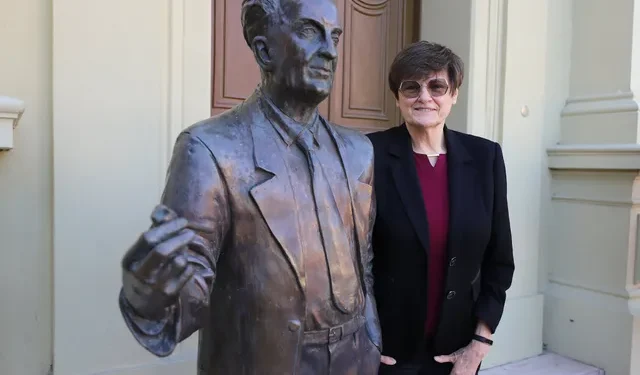BRUSSELS (Brussels Morning) – Hungarian professor Katalin Karikó received the science prize from the chemical company Solvay on Tuesday in the Palace of the Academies in Brussels. With her years of research into mRNA technology, she laid the foundation for various corona vaccines. The Science for the Future Solvay Prize, as it is officially called, is worth 300,000 euros.
”It is an incredible honour to receive this award,” says Karikó. “Thanks to many teachers and professors, I got to know the beauty of chemistry at university. I want to thank them for that, and I also thank my family, all my colleagues and the jury.”
Karikó, adjunct professor at the University of Pennsylvania (USA) and professor at the University of Szeged (Hungary), “has devoted her 40-year career to the use of RNA as a therapeutic agent,” says Solvay, “with chemistry as a key element to synthesise the mRNA to avoid the risk of rejection by the immune system”.
Messenger RNA or mRNA has been a commonly used term since the corona pandemic. It is described as the genetic script that passes on DNA instructions to each cell to form proteins, thus instructing the body to make its own medicine.
Other Applications
Pfizer/BioNTech’s corona vaccines are not the first application of mRNA technology in medicine.
“As early as 2018, AstraZeneca and Moderna conducted human clinical trials in the fight against heart failure, and tests were already being conducted with mRNA vaccines against flu,” says Karikó.
“Messenger RNA can also be used for the development of vaccines that do not yet exist, such as against HIV and of course cancer. There are currently about 150 clinical studies with mRNA. We are hopeful that effective drugs can be developed quickly.”
Essential Role
The Hungarian scientist is the second woman to win the Solvay science prize. The prize, which has been in existence since 2013, honours a scientist “for significant discoveries that underscore the vital role of science and chemistry in helping to solve some of the world’s most pressing challenges.”
Karikó also received an honorary doctorate from the Université libre de Bruxelles (ULB) last week for her groundbreaking work.




